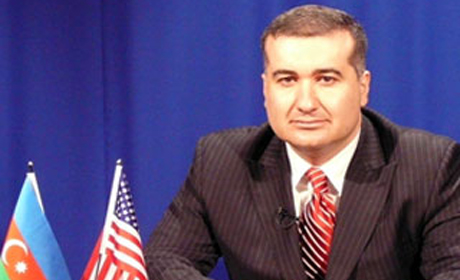Azerbaijan's role in global energy stability mulled in U.S.

By Aynur Jafarova
The U.S. University of Oklahoma's Tulsa campus has held a public forum dedicated to Azerbaijan's role in global energy stability.
The event which heard speeches of First District Congressman Jim Bridenstine and Azerbaijani Ambassador Elin Suleymanov was attended by about 70 people,AzerTag state news agency reported.
Speaking at the event Bridenstine said Azerbaijan is 90 percent Muslim state, but has a secular government and is friendly to the West. It has substantial oil and gas reserves and is the only country to border Russia and Iran.
In his remarks Suleymanov said since 2006, Azerbaijan has shipped oil via pipeline to Ceyhan on Turkey's southern coast. The pipeline system will be able to carry that oil as far as southern Italy within five years.
This Southern Corridor, as it is known, circumvents Russia completely, and offers the possibility of lessening that country's control of its former European satellites' oil and gas supplies, Bridenstine and Suleymanov said.
"As the importance of energy increases, the stakes are higher," Suleymanov said.
"The presence of the U.S. [in the region] is important," he said. "It is important because the U.S. is a major player. You can't be a major player and be absent from a critically important situation."
The gas which will be produced at the second stage of Azerbaijan's Shah Deniz field development will be the main source of the Southern Gas Corridor, which envisages the transportation of the Caspian gas to the European markets.
The Shah Deniz consortium announced the selection of TAP as the main route for transporting its gas to Europe in late June. Another pipeline which was vying for Azerbaijan's gas transportation to Europe was Nabucco West.
Azerbaijan agreed to sell over 10 billion cubic meters of natural gas a year from the second phase of its Shah Deniz development to nine companies in the European Union in September 2013.
The contracts were signed for 25 years between SOCAR and the European utilities, including Axpo Trading AG, Bulgargaz EAD, Depa, Gas Natural Fenosa, Hera Trading Srl, Shell Energy Europe, Enel SpA, E.ON SE, and GDF Suez SA.
The initial capacity of TAP will amount to 10 billion cubic meters per annum with the possibility of expanding to 20 billion cubic meters per annum.
TAP's shareholders include BP (20 percent), SOCAR (20 percent), Statoil (20 percent), Fluxys (16 percent), Total (10 percent), E.ON (9 percent), and Axpo (5 percent).
The construction of TAP is planned to start in 2015.
Here we are to serve you with news right now. It does not cost much, but worth your attention.
Choose to support open, independent, quality journalism and subscribe on a monthly basis.
By subscribing to our online newspaper, you can have full digital access to all news, analysis, and much more.
You can also follow AzerNEWS on Twitter @AzerNewsAz or Facebook @AzerNewsNewspaper
Thank you!
